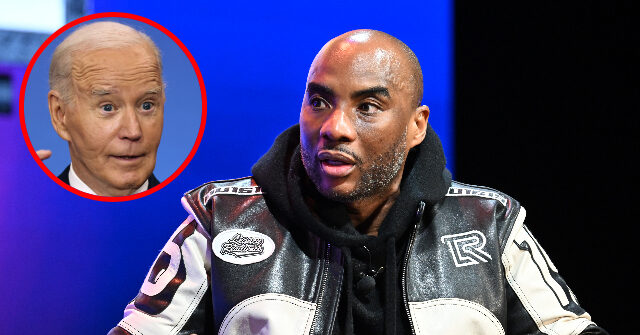In a recent episode of The Breakfast Club, radio host Charlamagne tha God shared his thoughts on President Joe Biden’s potential decision to issue “preemptive pardons” for political opponents of former President Donald Trump who have been accused of engaging in lawfare. Charlamagne, expressing skepticism about the need for such pardons, remarked that preemptive action might suggest guilt on Biden’s part. He stated that Trump won the 2024 election fairly, and thus, Biden should refrain from pardoning those who targeted Trump, as this would not only appear to undermine the integrity of the electoral process but also signal concern over possible wrongdoing.
Instead of focusing on critics or adversaries, Charlamagne emphasized that President Biden’s pardoning efforts should be directed towards nonviolent drug offenders in federal prisons, particularly those incarcerated for cannabis-related offenses. He believes that providing clemency to these individuals would have a meaningful impact and align with broader justice reform efforts. Charlamagne specifically named the need for pardons related to individuals facing legal challenges due to outdated drug policies, underscoring a more compassionate and equitable approach to law and justice.
Charlamagne’s co-host, DJ Envy, posited that Trump’s propensity for seeking retribution against these adversaries could warrant such preemptive pardons as a form of protection. However, Charlamagne countered Envy’s argument by questioning the logic behind pardoning individuals who have not been charged with any crimes, insisting that it could imply an acknowledgment of guilt or wrongdoing. He expressed confusion over the rationale for issuing pardons when there is no clear basis for such legal assistance, suggesting that doing so could send the wrong message to the public regarding accountability and justice.
The conversation highlighted the broader implications of political maneuvers surrounding pardons, especially in light of Trump’s past claims of wanting to settle scores with opponents should he regain power. Kamala Harris’s comments during her campaign, which indicated that Trump would seek revenge against his “enemies,” added another layer to the discourse on the motivations behind granting pardons. Charlamagne’s contention was that issuing preemptive pardons could potentially enable Trump’s narrative of being a wronged leader, further complicating the political landscape leading up to the next election cycle.
As the dialogue unfolded, Charlamagne acknowledged the unconventional nature of entering discussions related to political dynamics, particularly those deemed as “white people’s business.” His humorous remark reflects a recognition of the complicated and sometimes exclusionary nature of political discourse, suggesting a desire to navigate these conversations with caution and awareness. This highlights the broader cultural nuances that often accompany discussions about politics and governance, particularly in racially and socioeconomically divided contexts.
Overall, Charlamagne’s commentary serves as a call for focused pardon efforts aimed at addressing social inequalities and criminal justice reform, rather than politically motivated gestures lacking a basis in justice. By redirecting the conversation towards meaningful legislative changes and the plight of marginalized individuals, Charlamagne advocates for a more principled and just approach to the power of executive clemency. His insights reflect a desire for transparency and accountability in politics, emphasizing that actions taken by leaders should align with the genuine pursuit of justice rather than defensive maneuvers that could complicate the political landscape.

